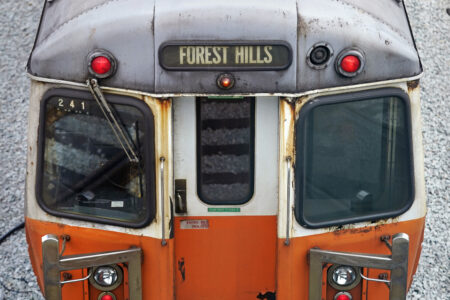In response to a “Farewell Love Letter to Boston” published by the Globe, where author Omer Aziz describes a generally unattainable life of luxury living in Boston proper, I confined myself to producing a list of nine unnecessary plights I experience in Massachusetts, the state I now call home.
Below the work by Canadian-born Omer Aziz, The Globe opened the floor for anyone who has fled MA to reminisce about the cobblestone and culture.
In that same, suffocatingly egalitarian fashion, I invited Massachusetts-folk past and present to contribute to what became a lengthy list of anguish and animosity toward government overreach in a state where residents once revolted over a three-penny tax on tea.
For the record, our compounding treasury of disappointment devastatingly outnumbers The Globe’s compilation of positive Commonwealth feedback. And you’ll notice that the complaints below are tangible—not like the “pulse” or “pace” or “waxing poetic” found in the Globe’s elitist gloat.
In response to my prompt, “What’s your biggest grumble about living in the People’s Republic of Massachusetts?” Shawn kept his response short and sweet. “Our two senators. Nuff said.”
Rooster described the situation of his son and daughter-in-law that is all-too-familiar to many young couples in the Boston area.
The college graduates, each raking in a six-figure salary, have lived in Jamaica Plain for 18 years. While their parents and grandparents may have been able to afford a house on a humble salary back in the day, the real estate in Boston’s nearby suburbs has skyrocketed in price, forcing couples to consider other options: renting for longer, until a down payment is feasible, or moving to western Massachusetts.
Rooster passed along the couple’s grievances over the property taxes combined with the cost of living. Natural gas is up – way up. Food, subsequently, is up. Car insurance in many neighborhoods is becoming prohibitively expensive.
For all the taxes paid, the school system is nothing to write home about, Rooster said, and private schools in Boston are unaffordable.
“We will all be heading to Westfield,” Rooster concluded.
Ron has a need for speed, and he hates the relatively recent implementation of a default 25-MPH speed limit in “thickly settled” areas.
Robert’s issue is with Massachusetts infrastructure, too.
“[The worst thing is] the unwillingness to even consider either building new highways, or expanding the ones we have that are choked with traffic, all at the behest of the bicycle-riding eco-warriors who consider the automobile to be the anti-Christ!”
“[MBTA] ridership has been flat to declining for years, despite decades of the social justice warriors trying to beg, bribe, or force us all onto public transit!”
Robert’s certainly done his research. He added, “Meanwhile, automobile registrations here in the People’s Republic of Taxachusetts are at an all-time high and increasing every year!”
After serving in the armed forces, all Tom wants is a special veteran license plate. But here, he must pay a premium.
“They say the money goes to a veterans’ home,” Tom explained. “This is a double slap-in-the-face to vets. The plates should be free, and the state should fund the veterans’ home!”
Of course, many across the state know where funding goes instead.
Kathy has been watching the rapid influx of illegal aliens into Massachusetts cities and towns.
“The right-to-shelter law,” her number-one MA objection, “was not meant for illegals.”
The right-to-shelter policy is also rubbing Mark the wrong way. He is reminded every time he gets his EZ-Pass invoice that while he pays “$200 a month in tolls on the Mass Pike to go to work,” illegal aliens are getting paid, essentially, to do nothing.
Leroy, an observer from outside the Bay State, threw in his two cents. He noted the politicization of every aspect of day-to-day life, from education to social services, and the nepotism ever-present in state-run programs.
The final item on his list?
“March blizzards.” Rub it in a little more, Leroy!
Dan described his home state as “not such a great place to visit,” adding, “and you sure as hell don’t want to live here.” He laid out a litany of political gripes and cultural grievances. He started with overpaid bureaucrats, awful roads (in condition and layout), a scandalous judiciary and the stranglehold on residents by an “intolerant, single-party system.”
Dan did not forget to mention the moral decline, denouncing state support for Planned Parenthood and a (pending) removal of God from state documents.
Kat continued the cultural conversation.
“Bostonians push their social agendas and ideologies on children. They’re smarter than us,” she noted.
“The rich liberals think they know what’s best for everyone,” S.D. concurred, “which hurts the poor and middle classes.”
Kate, who has lived in the Commonwealth for 32 years, has completely lost hope in ever seeing a conservative—or even commonsensical—balance in Beacon Hill’s rubber-stamp legislature.
“It’s demoralizing as heck,” she said.
Martin admitted that “taxes are high on the list” of complaints along with the widening ratio of people benefitting from his tax dollars —“freeloaders,” he calls them—who do not work.
He noted the corruption in the State Police as well as in the Massachusetts legislature. He mentioned that it was a “tradition at one time” for the House speaker to be a felon. (Only three in a row; the fourth was merely an “un-indicted co-conspirator.”)
Martin worries about the ever-loosening of driver’s license requirements. The learner’s permit test, he notes, is available in 35 languages. “But all road signs are in English.”
“I could keep going,” Martin wrote, “but this might be taxable somehow.”
Couldn’t say it better myself, Martin.


